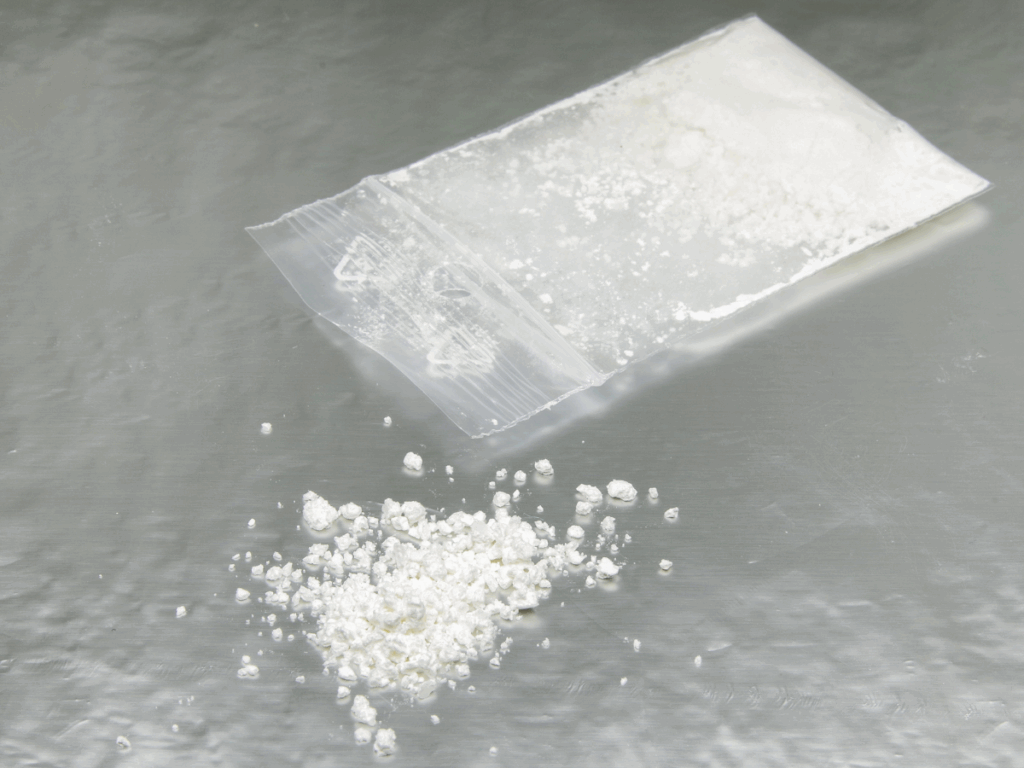
What Is Crack?
Crack is the smokable free-base form of cocaine created by mixing cocaine hydrochloride with baking soda or ammonia and heating the mixture into hard “rocks.” Smoking delivers the drug to the brain in seconds, producing an intense euphoria that peaks within 5–10 minutes—much faster and more potent than snorted powder cocaine.
Recognizing Crack Use Disorder and Addiction
Early identification saves lives. Warning signs span physical (weight loss, dilated pupils, burns on fingers or lips), psychological (paranoia, mood swings), and behavioral (binge use, secrecy, financial trouble) domains. The DSM-5 lists 11 criteria; meeting ≥ 6 indicates severe addiction, but even mild cases warrant professional help. Crack’s short high often drives marathon sessions (“binges”), escalating tolerance and dependence.
What Makes Crack Addictive?
Biological Factors
- Dopamine flood: Crack triggers a surge of dopamine in the nucleus accumbens. Over time the brain down-regulates natural dopamine production, leaving users unable to feel pleasure without the drug.
- Rapid delivery: Smoking bypasses first-pass metabolism, making the reward almost instantaneous, a key predictor of addiction severity.
- Genetics & comorbidity: Variants in dopamine transporter genes and co-occurring mental-health disorders (e.g., ADHD, PTSD) heighten vulnerability.
Psychological Factors
- Stress and trauma: Many individuals use stimulants to blunt emotional pain.
- Cue conditioning: People, places, or paraphernalia associated with smoking crack can trigger cravings months or years into recovery.
- Cognitive distortions: Beliefs such as “I need crack to function” reinforce compulsive use.
How Does Crack Affect the Brain?
Short- & Long-Term Effects on the Brain
- Short term: Hyper-alertness, insomnia, irritability, and transient euphoria may be followed by a “crash” marked by anhedonia and agitation.
- Long term: Persistent use alters frontal-lobe circuits critical for impulse control and decision-making, increasing risk for anxiety, depression, and psychosis disorder. Structural MRI studies reveal reduced gray-matter volume in prefrontal regions among chronic users.
How Does Crack Affect the Body?
Short- & Long-Term Effects on the Body
- Cardiovascular: Acute spikes in blood pressure can trigger heart attack or stroke—even in first-time users.
- Respiratory: Smoking super-heated vapors irritates airways, leading to chronic cough, asthma, and “crack lung.”
- Dental & dermatologic: Severe tooth decay, gum disease, and skin infections stem from vasoconstriction and malnutrition.
Overdose Risk
CDC provisional data show cocaine-involved overdose deaths rose 4.9 % from 2022 to 2023, underscoring the ongoing stimulant crisis—even as overall overdose deaths dipped for the first time in six years. Risk skyrockets when crack is combined with opioids or alcohol.
Withdrawal Symptoms
Abrupt cessation causes a predictable, three-phase syndrome:
- Crash (hours–days): Exhaustion, hypersomnia, and intense hunger.
- Acute withdrawal (3–7 days): Severe cravings, anxiety, depression, irritability, and vivid nightmares.
- Post-acute withdrawal (weeks–months): Intermittent cravings, mood swings, and cognitive fog that gradually subside.
Because dysphoria and cravings peak early, medically supervised detox at Legacy Healing Center’s Florida or California locations provides 24/7 nursing care, anti-craving protocols, and safe transition into therapy.
Treatment Programs for Crack Addiction
Comprehensive Crack Addiction Treatment combines medical stabilization with evidence-based counseling, peer support, and aftercare.
| Level of Care | Core Elements | Notes |
|---|---|---|
| Medical Detox | 24/7 monitoring, symptomatic meds (e.g., propranolol for autonomic hyperactivity) | Sets the stage for further care |
| Residential Rehab | Cognitive-Behavioral Therapy (CBT), Contingency Management (CM), Motivational Enhancement Therapy | Typical stay: 30–90 days |
| Partial Hospital/IOP | Daytime therapy, evening return home for those with stable housing | Flexible yet intensive |
| Outpatient & Telehealth | Weekly CBT, family therapy, relapse-prevention planning | Ideal for step-down care |
| Continuing Care | Alumni groups, recovery coaching, vocational assistance | Crucial for long-term success |
Behavioral Therapies
- CBT & Relapse-Prevention: Identify triggers, restructure thoughts, and rehearse coping skills.
- Contingency Management: 2025 SAMHSA guidance raised the incentive cap from $75 to $750 per patient per year, dramatically improving CM’s reach for stimulant disorders.
- Community Reinforcement & Family Training (CRAFT): Engages loved ones to reinforce sobriety.
Emerging & Adjunctive Approaches
- Medication research: Trials of buspirone show modest reductions in craving and relapse risk, though no FDA-approved medication exists yet.
- Neurostimulation: Repetitive transcranial magnetic stimulation (rTMS) targeting the dorsolateral prefrontal cortex is under investigation for craving modulation.
- Holistic care: Yoga, mindfulness meditation, and nutrition counseling support whole-person healing.
Why Choose Legacy Healing Center?
- Nationwide reach – Seamless transfers among campuses in South Florida, Newport Beach CA, Cherry Hill NJ, and Columbus OH.
- Multidisciplinary teams – Physicians, master’s-level therapists, and recovery coaches collaborate on every case.
- Aftercare for life – Graduates enjoy alumni events, virtual support groups, and relapse-prevention workshops at no extra cost.
- Insurance-friendly – Most major plans accepted; 24-hour admissions helpline available.
A Compassionate Lifeline for Crack Addiction Recovery
Crack addiction can feel relentless, fast-moving, isolating, and deeply overwhelming. However, no matter how far things may seem to have progressed, there is still a way forward. At Legacy Healing Center, our experienced care team is available 24/7 at(888) 534-2295 to help you or your loved one take that first courageous step toward safety, stability, and lasting recovery.
If you’re uncertain where to begin, we’re here to guide you. You can verify your insurance quickly and confidentially online, or speak directly with an admissions specialist who understands the complexities of crack cocaine dependence. We offer a range of resources and personalized support to help you feel informed, empowered, and ready to reclaim your life.
The road to healing starts with one brave decision. By reaching out, you’re not just asking for help—you’re choosing dignity, hope, and a future free from chaos. Let this be your turning point.
Trusted Support, Available Now
Whether you’re ready to begin or simply seeking clarity, these confidential resources are here when you need them:
Legacy Healing Center: Call (888) 534-2295 to speak privately with a detox and recovery expert.
SAMHSA National Helpline: 1-800-662-HELP (4357) – Free, 24/7 support for individuals and families navigating substance use.
988 Suicide & Crisis Lifeline: Dial 988 for immediate support in a mental health or substance-related emergency.
You don’t have to face this alone—real help is just one step away.


 Written By:
Written By: Edited By:
Edited By: Clinically Reviewed By:
Clinically Reviewed By: 




 Verify Insurance
Verify Insurance